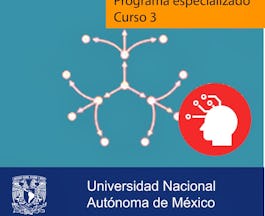Filter by
Subject
Required
Language
Required
The language used throughout the course, in both instruction and assessments.
Learning Product
Required
Build job-relevant skills in under 2 hours with hands-on tutorials.
Learn from top instructors with graded assignments, videos, and discussion forums.
Get in-depth knowledge of a subject by completing a series of courses and projects.
Level
Required
Duration
Required
Skills
Required
Subtitles
Required
Educator
Required
Results for "setting+up+of+the+necessary+minimisation+problem"
 Status: Free
Status: FreeThe Chinese University of Hong Kong
Skills you'll gain: Leadership and Management
 Status: Free
Status: FreeCoursera Instructor Network

University of Virginia
Skills you'll gain: Design and Product, Data Analysis

Universidad Nacional Autónoma de México

Howard University

University of Minnesota
Skills you'll gain: Algebra, Business Analysis, Data Analysis, Decision Making, Linear Algebra, Mathematical Theory & Analysis, Mathematics, Leadership and Management, Plot (Graphics)

Macquarie University
Skills you'll gain: Problem Solving
 Status: Free
Status: FreeCoursera Instructor Network
 Status: Free
Status: FreeNew York University

University of Michigan
Skills you'll gain: Data Analysis

EIT Digital
Skills you'll gain: Data Analysis
In summary, here are 10 of our most popular setting+up+of+the+necessary+minimisation+problem courses
- 离散优化算法篇 Solving Algorithms for Discrete Optimization: The Chinese University of Hong Kong
- Public Sector Efficiency: Optimizing Business Processes: Coursera Instructor Network
- Grundlagen zum Thema Projektplanung und -management: University of Virginia
- Resolución de problemas por búsqueda: Universidad Nacional Autónoma de México
- Solving Business Problems with Spreadsheet Modeling: Howard University
- Optimization for Decision Making: University of Minnesota
- Solving Complex Problems Capstone: Macquarie University
- Advanced Scheduling and Project Optimization in Primavera P6: Packt
- Algorithmic Solutions: Design, Problem Solving, Reporting: Coursera Instructor Network
- MOST from a Methodological Perspective: New York University











